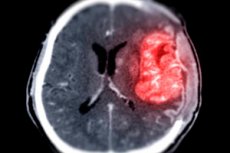New publications
New biological mechanism discovered to treat breast cancer metastasis to the brain
Last reviewed: 02.07.2025

All iLive content is medically reviewed or fact checked to ensure as much factual accuracy as possible.
We have strict sourcing guidelines and only link to reputable media sites, academic research institutions and, whenever possible, medically peer reviewed studies. Note that the numbers in parentheses ([1], [2], etc.) are clickable links to these studies.
If you feel that any of our content is inaccurate, out-of-date, or otherwise questionable, please select it and press Ctrl + Enter.

Researchers at the University of Arizona Health Sciences Cancer Center have identified a biological mechanism that could lead to more effective treatments for breast cancer that has metastasized to the brain.
By examining metabolic differences between primary breast cancer cells and cells metastasizing to the brain, the scientists determined that autophagy was significantly activated in brain metastases. Autophagy is a cellular recycling process that cancer cells use to survive stressful conditions, such as those caused by anti-cancer drugs.
"The prognosis for patients with brain metastases from breast cancer is extremely poor, and treating these metastases remains challenging. We were able to disrupt the ability of cancer cells to form brain metastases by disrupting the autophagy pathway," said Dr. Jennifer Carew, senior author of the study.
In a study published in the journal Clinical and Translational Medicine, the researchers showed that targeting a key autophagy-regulating gene, ATG7, significantly reduced the ability of breast cancer cells to form brain metastases in mouse models.
The researchers examined whether the FDA-approved drug hydroxychloroquine could be used to treat breast cancer metastases to the brain. Hydroxychloroquine inhibits autophagy at a later stage in the pathway and, importantly, easily crosses the blood-brain barrier.
The team combined hydroxychloroquine with lapatinib, also approved by the FDA for breast cancer. The combination was shown to successfully reduce the number and size of breast cancer brain metastases in mouse models. This is the first time that researchers have studied the effectiveness of hydroxychloroquine in combination with lapatinib for breast cancer therapy.
"Our team was amazed at how significantly we were able to reduce the ability of cancer cells to form brain metastases by targeting just one pathway," Dr. Carew said. "Cancer cells, unfortunately, have evolved many ways that make them difficult to stop growing or kill. It's always a little surprising to see how changing just one aspect can make a difference."
Dr Steffan Nawrocki, first author of the study, said: "Because hydroxychloroquine and lapatinib are already FDA approved, we can quickly move to clinical trials of this combination for patients with brain metastases from breast cancer."
Brain metastases are the most common central nervous system tumors in adults, with 20%–30% of cases occurring in patients with breast cancer, particularly those with triple-negative disease or HER2 amplification. Management of breast cancer brain metastases is challenging, with only 20% of patients with brain metastases surviving beyond five years.
This study opens new horizons in the treatment of metastatic breast cancer and may significantly improve the prognosis for patients with this serious disease.
